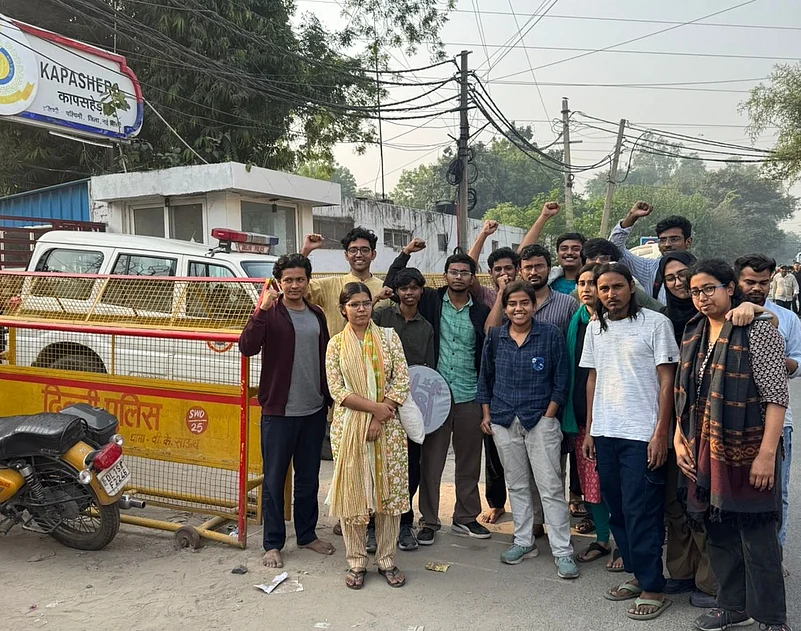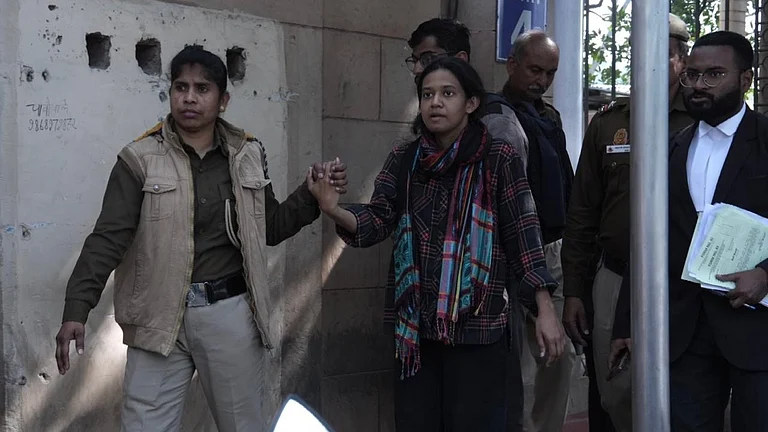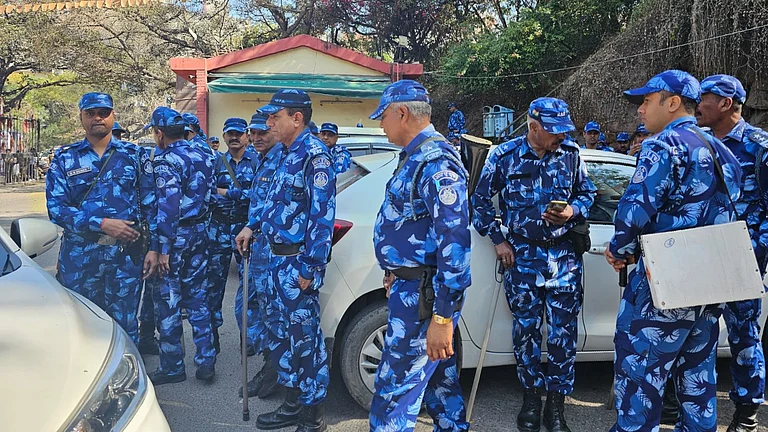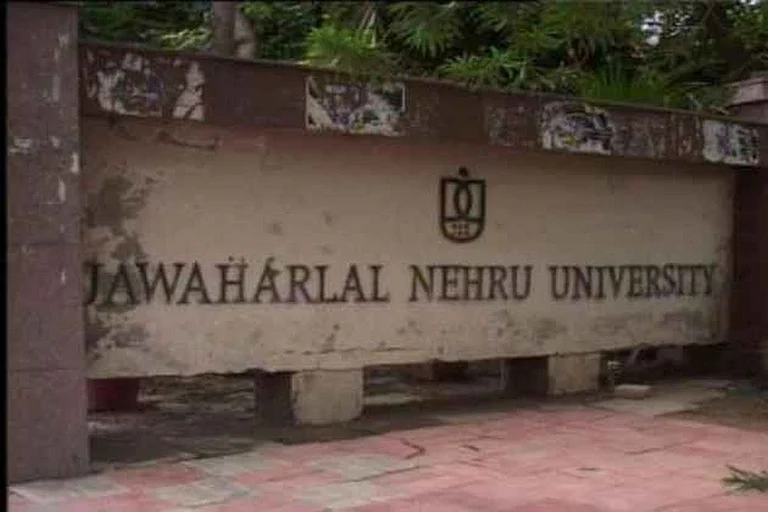
Summary of this article
Former student leaders and student groups alleged severe police violence during the detentions
The protest stemmed from a clash during JNUSU election preparations, where Left groups accused ABVP members of assault and casteist abuse; ABVP claimed the Left attacked first
Frustrated by a lack of police response, 70–80 students marched toward Vasant Kunj police station but were stopped by barricades
All 28 detained Jawaharlal Nehru University (JNU) students, including JNUSU President Nitish Kumar, Vice President Manisha, and General Secretary Munteha Fatima, were released after roughly 14 hours in police custody following a protest march on Saturday evening.
The detentions occurred during clashes at the university’s West Gate, where students demanded an FIR against Akhil Bharatiya Vidyarthi Parishad (ABVP) members for alleged violence at campus meetings. Six students were booked for obstructing police duties but were released without further arrests.
Former JNUSU president Sai Balaji condemned the police action, calling it unprecedented. “They were held from 7 pm to 9 am. This kind of physical and mental torture of student protesters is unheard of,” he said. Balaji alleged instances of police brutality, including fractures, internal bleeding, and kicks to private parts, with some students requiring treatment at Safdarjung Hospital. He questioned the legal basis of the detentions, adding, “Protesters are being criminalised simply for demanding the police do their job.”
The protest followed clashes on Friday during a School of Social Sciences general body meeting related to JNUSU election preparations. Left-affiliated groups accused ABVP members of assault, including grabbing a woman by the throat and using casteist slurs. ABVP, in turn, claimed Left students attacked them first.
Over the past three days, ABVP has aggressively attempted to disrupt the school General Body Meetings (GBMs), which are being held as part of the ANU Students' Union election process. Despite this, students have resisted the violence and proceeded with the GBMs as planned, said sources.

Thousand Protest infont of Police stationDuring these events, ABVP members physically assaulted and restrained JNUSU President Nitish Kumar, who belongs to the OBC community, Manisha, a Dalit, and Monteha, a Muslim. They were subjected to casteist and communal remarks, such as being told not to “overstep” because they came through reservations from Kote. These individuals were held hostage in front of the police for three hours and were only released after sustained public pressure.
In response to alleged police inaction, about 70–80 students, including many women, marched toward the Vasant Kunj police station but were blocked by barricades on Nelson Mandela Marg.
The All India Students’ Association (AISA) and Students’ Federation of India (SFI) condemned the police response, alleging female students were manhandled by male officers and JNUSU leaders were beaten, with one councillor hospitalised.
The Communist Party of India (Marxist-Leninist) Liberation (CPIML Liberation) took to X and said it strongly condemns the “brutal assault” on the JNUSU president and other students by Delhi Police at JNU’s West Gate.
Responding to the controversy at JNU, former JNUSU president and Congress leader Kanhaiya Kumar criticised the ABVP for persistently trying to disrupt the campus atmosphere since the announcement of the Student Union elections. On X, he stated that it was “extremely shameful” that multiple individuals, including the current JNUSU president, had been assaulted, and condemned the police for "protecting" the attackers rather than holding them accountable.
Reflecting on a broader pattern, he wrote, “For the past ten years, despite all the attempts by RSS-ABVP-BJP, the government, and their sycophantic media to defame JNU, JNU is fighting back, and just like every time before, this time too they will fail in their intentions.”






















